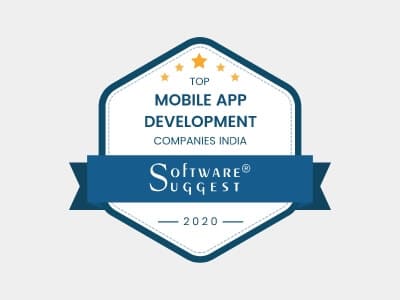Smartphones have set a new trend. Today, every eight out of ten individuals own a smartphone. Back then smartphones were not that popular due to their high prices. However, today the scenario is totally opposite. As a mobile developer, no one can predict future as to which platform will be the star performer. So mobile developers ought to know about various mobile platforms like iPhone, BlackBerry, Android or Windows to showcase their distinctive skills. If you are fully equipped with all these platforms and look forward to have a great future in one of them then read on the following comparison made between Windows phone development to Android Development:
Development Tools
Android:
- Android was launched on September 23, 2008 as an open source software.
- Android is developed majorly in Java, C or C++.
- Design of the declarative screen in Android is an XML file which gets infused in the parallel code activity at execution time.
- To start developing Android you download eclipse, eclipse plugin and Android SDK. Incorporating these tools will set you to start developing Android.
- Android is backed up by Google.
- Android is supported by platforms like ARM, MIPS, x86 and I.MX.
- It works on Integrated Development Environment (IDE) of Eclipse, IntelliJ and NetBeans.
- Its default user interface is Graphical (Multi-touch).
- Android can function on Windows, Mac and Linux
Windows Phone:
- Windows Phone was launched on October 21, 2010 as a closed source operating system for mobile devices.
- Windows phone development is done in C#, .NET, JavaScript, C++, Microsoft Visual Basic.
- Design of the declarative screen in Windows phone is epitomized in Extensible Application Markup Language (XAML).
- XAML is known as declarative language that represents a Windows Runtime object with every XML node.
- For developing Windows Phone you need to install SDK and Visual Studio Express and you are ready!
- Windows phone is backed up by Microsoft, similar to how businesses are leveraging Microsoft Power Apps for custom app development.
- Windows phone is supported by platforms like ARM and x86.
- It works on Integrated Development Environment of VisualStudio.
- Its default user interface is Graphical (Metro UI).
- Windows phone is developed best on Windows Operating System.
Both these platforms have enriched documentation. However Android has a benefit of accessing online communities like StackOverflow and mailing lists. Eclipse and Android SDK can be executed on all versions of various operating systems whereas Visual Studio can be executed only on Windows Vista or later.
UI development
Once you set up your tools you can start the development. Both platforms utilize XML to build UI of any application. The similarities between Windows vs Android Phone are quite apprehensive too.
Windows Phone:
Windows phone has direct procedure to create UI. It also offers a great drag and drop tool.
Android:
The basic drag and drop tool in Android cannot function that well in UI designing for distinct screen sizes of Android. Hence, it is little complicated.
UI Guidelines
Design guideline is the other crucial issue to handle while dealing with these two platforms as follows:
Windows Phone:
The design guidelines for Windows Phone is listed largely. While designing your application consider some successful factions such as:
- Deliver enriched user experience on any device.
- Spend enough time using these UI designs so that your application can seamlessly be shipped with OS. Thus you will get familiarized with design paradigms of Windows Phone.
Android:
Design guidelines for Android are prone to frequent changes. Hence it involves often redesigning of Android apps. However, these changes in Metro UI is not that dramatic.
Development Cost
Cost is the biggest confinement in any project development. Hence here you can get an approximate estimate:
Windows Phone:
Developing Windows Phone incurs extra costs. Publishing or deploying an app in your device will charge you for the full Visual Studio Version. Its fee is $99 per annum. These costs have reduced for summer offers up to $19. Also for students some of these costs are exempted.
Android:
Android is noticeably cheaper as it charges only the app publishing cost of $25.
App store submission process
Windows Phone:
Windows Phone applications are published via any of the following accounts:
- Developer account: this costs up to $19/year
- Enterprise account: this will cost up to $99/year
The validation process takes maximum 5 days and is slightly rigid. If your app gets rejected, an error report will flash displaying to make important changes in your app. It is a reliable store and doesn’t have malwares in the marketplace of Windows Phone.
Android:
One time $25 registration fee charged for a Google Play Developer Console account.
Both the comparisons are clearly stated here. However, every platform is chosen depending upon your business requirement and future scope, including considerations for the Android app development lifecycle. Every platform has its pros and cons. To select the best one for you, avail expert advice.
Testimonials: Hear It Straight From Our Global Clients
Our development processes delivers dynamic solutions to tackle business challenges, optimize costs, and drive digital transformation. Expert-backed solutions enhance client retention and online presence, with proven success stories highlighting real-world problem-solving through innovative applications. Our esteemed Worldwide clients just experienced it.
Awards and Recognitions
While delighted clients are our greatest motivation, industry recognition holds significant value. WeblineIndia has consistently led in technology, with awards and accolades reaffirming our excellence.

OA500 Global Outsourcing Firms 2025, by Outsource Accelerator

Top Software Development Company, by GoodFirms

BEST FINTECH PRODUCT SOLUTION COMPANY - 2022, by GESIA

Awarded as - TOP APP DEVELOPMENT COMPANY IN INDIA of the YEAR 2020, by SoftwareSuggest